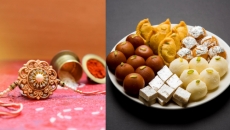Almost every flower can be cut and enjoyed indoors, but growing a proper cutting garden takes a bit of planning, and the first step is to consider your flowers as a crop to be harvested. Just as some tomato varieties are preferred for use in sauces, some flowers are better for cutting and arranging than others.
Those with short stems, for instance, don’t lend themselves to a second act in a vase. Ditto those with fragile blossoms, which would wither indoors within a day.
Seed catalogs offer the greatest selections, and their descriptions often include whether flowers are appropriate for cutting and arranging.
Annuals and perennials both can be grown in the cutting garden. Annuals complete their entire life cycles in one year but typically produce a profusion of blooms throughout the season. To ensure a steady supply of flowers for cutting, employ “succession planting” by sowing or planting more seeds or seedlings every two weeks.
Perennial plants return year after year but often aren’t as prolific as annuals. Some bloom for just two or three weeks; others rebloom repeatedly. Read plant descriptions carefully.
Keep in mind that although annuals will produce plenty of flowers in their one and only year, perennials grown from seed won’t usually bloom until their second year, and sometimes not until their third.
Annuals well-suited for cutting include celosia, cosmos, globe amaranth, larkspur, sunflower varieties, Queen Anne’s lace, annual salvia and zinnia.
Perennials to grow and cut include astilbe, bee balm, black-eyed Susan, chrysanthemum, coneflower, foxglove, garden phlox, gladiolus, lily, peony, ranunculus, rose, perennial salvia, Shasta daisy and yarrow.
Another category of plants, called tender perennials, are technically perennials because their life cycle does not complete in one year but they are usually grown as annuals because some don’t return reliably and others can’t survive winters outside their hardiness zones.
Tender perennials that are great for cutting include calendula (perennial in zones 9-11), California poppy (perennial in zones 8-10), snapdragon (perennial in zones 7-11), statice (perennial in zones 9-11) and strawflower (perennial in zones 9-11).
Bulb, tuber and corm plants like allium, daffodil, tulip and dahlias should be considered, too.
And don’t forget fillers: fern, baby’s breath, bells of Ireland, dusty Miller, flowering tobacco, oregano, pussy willow, silver dollar plant, and interesting twigs and branches will elevate your hand-picked bouquets to professional levels.
Both annuals and perennials can be grown in the ground, in raised beds or even in containers. If you have enough room, growing them in separate beds will simplify annual planting, but it’s not necessary; if you’re short on space, plant where you can, even if it means tucking flowers between vegetables or other garden plants.
Most flowers require fertile, well-draining soil, regular watering and at least six to eight hours of direct sunlight daily. You can use plants purchased from a nursery, start your own from seed indoorsor sow seeds directly into the garden.
Add a generous helping of compost into planting holes to nourish plants. Or, if you’re planning ahead, top the soil with 2-3 inches of compost in the fall, and the bed will be highly fertile by spring.
Beds should be no wider than 3 or 4 feet, which will keep your harvests within easy reach from all sides. When planting, place the tallest flowers at the rear of the bed, mid-size plants in the center and shorter varieties in front so that all are easily accessible.
Be sure to space plants according to the recommendations on their seed packet or plant tag to account for their mature sizes. Crowded plants often become diseased plants.
After planting, apply a balanced, slow-release fertilizer and 2-3 inches of mulch, then water well. If sowing seeds directly into the garden, fertilize and mulch when seedlings are 4 inches tall.
Beginning three weeks after planting, apply a liquid flower fertilizer low in nitrogen and high in phosphorus, such as one labeled 1-34-32, and repeat every two weeks.






